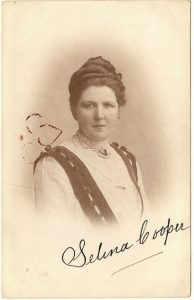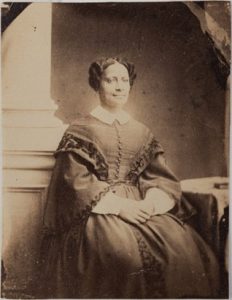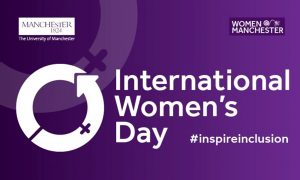
Emma Shields: International Women’s Day 2024 – history of women and worker’s rights which inspires inclusivity
International Women’s Day 2024 – inspiring inclusivity
On the 8th March 2024, there will be celebrations and activities across the world to mark International Women’s Day. This year’s theme is to ‘Inspire Inclusivity’.
Manchester has a rich history relating to women and worker’s rights. To me, these rights are historically analogous; International Women’s Day started as a protest by women workers over unfair conditions in the workplace. In New York City on the 8th March 1857, textile workers marched in protest of the dangerous and underpaid working conditions in the factories, and for equal rights for women. On the 8th March 1908, workers in the needle trades marched through New York City’s Lower East Side to protest child labour, sweatshop working conditions, and demand women’s suffrage. This is now annually observed as International Women’s Day.
In order to understand and celebrate this year’s International Women’s Day, we must examine our collective history with an inclusive lens. Let’s look further into the legacy of women in Manchester.
Inclusive Women’s History / The other side of the coin
Women’s history is often studied through a narrow lens.
I remember questioning my teacher in primary school during his lesson on the Suffragette movement in Manchester. He taught our class that ‘only recently’ had women joined the workforce. Prior to WW1, women did not work. After WW1, due to the absence of men, women had ‘proven’ themselves as ‘good workers’, and were therefore rewarded with the right to vote.
This created a great deal of confusion for me, as my grandmother, her grandmother, and every woman in my lineage were workers. My teacher said that I must have been mistaken, as women were not workers before the war, they all kept at home and had children.
I faced a new reality – some women were born into privilege that I couldn’t comprehend.
The truth is, my teacher and I were both talking about different women. Neither of us were completely wrong. My teacher wasn’t showing women’s history with an inclusive lens.
Suffragettes
The world knows the names of Emmeline Pankhurst and her daughters, and in the late 19th and early 20th centuries, ‘Manchester’ became synonymous with the ‘suffragette movement’.
However, it’s crucial to recognise that the struggle for women’s rights in Manchester isn’t monolithic. While middle-class suffragettes dominate the narrative, working-class women, including those from diverse ethnic backgrounds, also played pivotal roles. Women like Selina Cooper, a mill worker, and Hannah Mitchell, a working-class suffragette, brought attention to the intersecting oppressions faced by women in both the public and private spheres.

Hannah Mitchell
Documenting Dissent | Selina Cooper (1864-1946)
Growing up, I remember hearing stories of Deaf women who had worked in gruelling conditions throughout the 18th and 19th Centuries in the cotton mills, the factories. They endured long hours, low wages, no sick or maternity pay, and faced a hazardous and noisy environment.
Here is a picture of an 18th Century woman’s shoe, found in the attic of an old factory in Ancoats. I can’t help but wonder what her life was like. Could she read? Did she have children? She is often overlooked in favour of a more sanitised narrative – one that ignores working class women’s history.

18th Century woman’s shoe, found in the attic of an old factory in Ancoats
Ancoats: From cotton to cool | Science and Industry Museum
We should also reflect on the history and contributions of Black and minority ethnicity women in Manchester, who often faced unique challenges and discrimination. Sarah Parker Remond, an American abolitionist, came to Britain to raise awareness of the anti-slavery movement and appealed to mill owners and cotton workers to support the cause. In 1859, Remond spoke at Manchester Athenaeum, which is now part of Manchester Art Gallery, calling on women to support abolitionists. She supported the British suffrage movement and added her signature to the 1866 Women’s Suffrage petition.
Remond also appeared alongside Frederick Douglass, a women’s suffrage advocate and American abolitionist. In Manchester, Douglass lectured and educated British people about his experience of being an enslaved person, speaking to millworkers at the Public Hall in Rochdale and anti-slavery meetings at the Free Trade Hall in Manchester.

Sarah Parker Remond
Olive Shapley, born in London but lived in Manchester until her death, had a fascinating and radical career that challenged racial inequalities and fought for racial justice and gender equality. As a BBC broadcaster, in 1949 Shapley became the presenter of the daily Woman’s Hour. She brought formerly taboo subjects, like menopause and women without men, onto the air.
I have listed some links about this subject here:
- Hidden Histories: Black in Manchester
- Women of the Soil Project – (23) Black Women’s Activism in Manchester – Women Of The Soil project – YouTube
- Olive Shapley obituary | | The Guardian
- BBC Archive shines light on Northern social documentary pioneer Olive Shapley – Prolific North
Their stories remind us of the importance of centring inclusive perspectives in our understanding of women’s history and achievements.
While significant progress has been made since the days of the suffragettes and abolitionists, women in Manchester continue to confront many challenges. Economic inequality, gender-based violence, lack of representation in leadership positions, and systemic barriers persist in various forms.
Shown most aptly during the COVID-19 pandemic, there was exacerbation of existing inequalities, disproportionately affecting women. Women who were working from home were often expected to complete domestic tasks and childcare whilst working. Whilst women who were not permitted to work from home, such as frontline healthcare workers, essential service providers and caregivers, bore the brunt of the crisis.
See: Working from home – what does it mean for women? – Understanding Society
Looking Ahead: Building a More Inclusive Future
As we commemorate International Women’s Day, let’s recommit ourselves to building a more inclusive and equitable future for all women in Manchester. Let’s celebrate International Women’s Day by inspiring inclusivity.
This means advocating for policies that address economic inequality, combating gender-based violence, promoting diversity and inclusion in all sectors and creating spaces for meaningful participation and representation.
International Women’s Day is not only a time to celebrate the achievements of women but also a call to action to dismantle intersecting systems of oppression. By honouring the legacy of women who fought for equality in Manchester and inspiring inclusivity, we can work towards a future where all women can thrive.
Read more about how The University is celebrating International Women’s Day 2024 with activities and events, International Women’s Day | StaffNet | The University of Manchester

By Emma Shields -The Productivity Institute, Manchester Alliance Business School






0 Comments